Essential workers are the economy: Hilary Pennington with Erica Smiley

Transcript
[Erica Smiley, a Black woman with short hair, black glasses, and a blue shirt, sits for a video conversation with Hilary Pennington, a white woman with short blonde hair, silver hoop earrings, and a blue sweater.]
[on-screen text: Erica Smiley, Executive Director, Jobs With Justice]
ERICA SMILEY: Well, the real question is, you know, how are workers able to set standards, set terms, set wages? What’s their process in that voice? If it’s not collective, it’s not equal and it’s not fair.
HILARY PENNINGTON: You know, the economy is something created by human beings.
SMILEY: Exactly.
HILARY: Not the other way around.
SMILEY: [laughing] Oh, say it again, Hilary. You can’t say it enough.
[on-screen graphic: Social Justice Leaders on What Matters, Hilary Pennington with Erica Smiley]
[on-screen text: Hilary Pennington, Executive Vice President of Programs, Ford Foundation]
HILARY: I am with Erica Smiley today. Erica is the executive director of Jobs With Justice, a longtime organizer and movement leader. And, Smiley, I’m really excited for this conversation because you are one of the most innovative thinkers in the labor and workers’ rights movements today.
SMILEY: Thank you. Hilary. It’s so wonderful to be able to have this conversation with you.
HILARY: I want to ask you about this moment we’re in—the pandemic, the economic fallout, the racial reckoning. Is something fundamentally shifting for American workers now in crisis or do you think this moment is just somehow revealing the crisis that was there all along?
SMILEY: I think the moment we’re in is definitely—it’s 150 years due. I actually do think that we’re at a pretty significant inflection point, where we have to really make the decision and the choice of are we going to move forward in this kind of grand experiment of a multiracial American democracy, and are we going to really apply those principles of majority rule and equality, not just in the political arena but in our economic landscapes, as well?
HILARY: Right.
SMILEY: That’s really the fundamental question.
HILARY: That is the question. But you know, Smiley, I felt—I don’t know about you— but early in the pandemic, I felt a moment, despite how horrific it was, of optimism in the sense that it seemed like, “It has to break through now”—you know, people have to be seeing the essential workers that we all depend on. And now, you know, as time goes on, it’s really hard to recalibrate. And I’m curious, you know, for you, in this moment, does it make your work harder or, in a way, has it actually made your arguments more clear?
SMILEY: I think there was a moment after the murder of George Floyd where, you know, so many people were in the street, just like trying to claim our shared humanity, and lots of companies—Amazon and many others—were, you know, putting up the Black Lives Matter and having a sticker, “We support Black lives.” But at the same time, Amazon, in particular, was firing Black workers, Black essential workers who were requesting protective equipment from the pandemic or who were requesting, you know, that the company change its practices on the warehouse floor so that people wouldn’t get as sick. And so many people were getting sick at Amazon warehouses. And so there’s this—there is a real question of if a company can socially say that they support equality and support Black lives, acting and practicing economically in ways that are destroying those lives.
But for those of us in the movement, it’s going to be critical, critical in the coming years that we don’t take it for granted. A lot of people will say, you know, it’s got to be clear now. Yet, I don’t think any of it is guaranteed unless we really fight for it.
HILARY: We organize and we fight. And this is another thing that I really love about your work and your thinking is this notion of expanded collective bargaining, beyond just worker-owner contexts, and what it would mean in other places and spaces. And I’d love it if you could elaborate a little bit on what you’re doing there.
SMILEY: So, at Jobs With Justice, you know, we built out a framework we like to call the “J With J Way,” which basically says that working people should have the right to come together collectively to organize and negotiate their economic conditions, be it in their work sites, in their housing, in their financial—with their financial institutions—but in all aspects of their economic life.
HILARY: Across the range of dimensions.
SMILEY: Across the range of dimensions. If we define democracy as the majority of people being able to participate in consultation and governing, that that has to happen everywhere, and including at our work sites. And that given that the nature of work has changed so dramatically for so many people—that the employer is less clear, that the workplace is so fissured, that even along more clear supply chain hierarchies, your actual boss really isn’t the person making the big economic decisions. And so, you know, in those circumstances, that we have to actually match the process for that negotiation to happen to the framework that it exists in. How are workers able to set standards, set terms, set wages? What’s their process in that voice? If it’s not collective, it’s not equal and it’s not fair.
HILARY: Yeah. You know, the economy is something created by human beings.
SMILEY: Exactly.
HILARY: Not the other way around.
SMILEY: [laughing] Oh, say it again, Hilary. You can’t say it enough.
HILARY: You know, how do they make the economy work for them?
SMILEY: What’s amazing about this moment of essential workers, about this frame, is that it finally positions them as their role in the economy, which is a position of power, not a position of exclusion or charity. Not just during a pandemic. But to actually clarify, they’re essential, period. They’re essential, and the crisis has only, like, shown it to everybody. Then the question becomes not only how are we treating them—what are the standards that essential workers have to be able to sustain themselves and their families—but also what are the platforms on which they get to be a part of preparing for these crises before they come?
HILARY: Oh, I love that.
SMILEY: Yeah, I mean, there’s a great study that just came out of George Washington University between nursing homes that had a union and nursing homes that didn’t have a union. So you can imagine that nursing homes that had a union had some plan in place, mainly because they negotiated a plan. That’s what you do in a contract. You negotiate for things far beyond wages. And the other nursing homes did not. And they found that in this study, nursing homes with a union had 30% less deaths to COVID-19 than the nursing homes without a union.
And so, what we’re talking about when we talk about essential worker standards and when we talk about essential workers having access to decision making, is that they have the ability then to not only have democratic participation but to prepare for the crisis before it comes. And when they do that, we’re all safe. We’re all better off for it.
HILARY: You know at Ford, we often say that those closest to the challenge are closest to the solution.
SMILEY: All day.
HILARY: You know, their experience is the expertise, and that is just such a great example.
Let’s talk for a minute, a little bit, about power.
SMILEY: All right.
HILARY: About power and philanthropy.
SMILEY: All right. Don’t tease me with a good time, Hilary. We’re going to get in there if we’re going to do this. [laughs]
HILARY: I’m often struck by the way that you and your peers—you know, people especially in workers’ rights spaces—talk about building power. And we in philanthropy love to throw that word around. But then, you know, when we talk about concrete mechanisms to actually seize power, a lot of us who throw that word around suddenly get uncomfortable. So, you know, in your experience, what’s necessary to go from statement to action?
SMILEY: You know, when we think about what it means to have power, it can’t just be for the point of passing some piece of legislation or, like, getting an issue in law. That’s part of it. That’s certainly really, really important. But when we think about power, we’re actually thinking about the power to both create those laws, enforce those laws, and change them when situations evolve. I mean, when you think of a union contract, it really is just a policy for a workplace. But what makes it strong is that there’s actually a grievance and enforcement procedure that involves workers. Well, we want that everywhere. We want that in every policy, civic, economic relationship. We want to be able to both set the laws collectively but also be a part of enforcing and grieving and ultimately changing them when they no longer service us as a society. That’s really what is important to think about—the power to what end?
But if we forget that that is actually to the end that people have dignified lives, that people have more time to go to their kids’ soccer games, or, god forbid, take up a musical instrument—like, really, what we’re ultimately getting at is that. This fulfilling life.
Where we freeze up is trying to recognize where we can actually have shared prosperity, some people have to lose something. And this comes up particularly when we talk about issues of race, right? Like, part of the visceralness of the white nationalist backlash is the assumption that because of people of color and immigrants and Native communities that they will lose something. And we keep saying, “But you won’t. We have the same targets, we have the same self-interest.” And we do overall. I mean, we honestly think—I honestly think that we have more to gain together than apart. But if we don’t clarify that you will lose this idea of this kind of unspoken privilege you have, based on race. We have to make the time and consider it real work to imagine a democracy worth fighting for.
And that’s really our challenge in this moment as we move forward. We have to imagine a democracy worth fighting for and then we have to fight like hell for it.
HILARY: Oh, Smiley, I—we should just stop there. Really. Absolutely. You are 100% right. I just—I can’t thank you enough for spending time to have this conversation. But, you know, really, especially, for just who you are and what you’re doing.
SMILEY: Thank you, Hilary. I appreciate that. And know that it’s mutual with you and the team at Ford. It’s just, just much respect. Thank you so much.
[on-screen text: What’s your take? Join the conversation]
[on-screen graphic: Ford Foundation logo]
Accessibility Statement
- All videos produced by the Ford Foundation since 2020 include captions and downloadable transcripts. For videos where visuals require additional understanding, we offer audio-described versions.
- We are continuing to make videos produced prior to 2020 accessible.
- Videos from third-party sources (those not produced by the Ford Foundation) may not have captions, accessible transcripts, or audio descriptions.
- To improve accessibility beyond our site, we’ve created a free video accessibility WordPress plug-in.
“What’s amazing about this moment of essential workers is that it finally positions them as their role in the economy, which is a position of power, not a position of exclusion or charity.”
In this episode of “Social Justice Leaders On What Matters,” we bring you Erica Smiley, the executive director of Jobs With Justice, a nonprofit fighting for workers’ rights and an economy that works for everyone. Check out Smiley’s conversation with our executive vice president Hilary Pennington on essential workers, the pandemic, and the need to shift power.
Learn more about Jobs With Justice at jwj.org
Other videos in this series
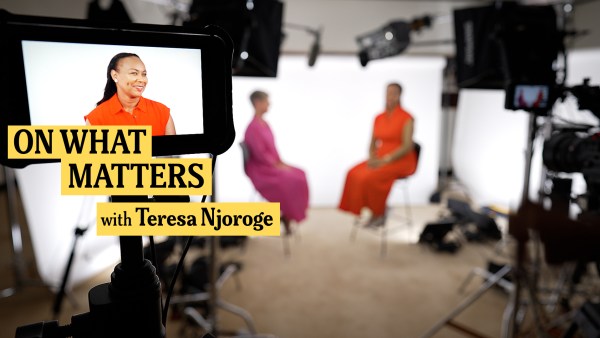
The Power of Restorative Justice With Teresa Njoroge and Hilary Pennington
Teresa Njoroge, founder and CEO of Clean Start Solutions and criminal justice reform advocate, and Hilary Pennington, executive vice president of programs at the Ford Foundation, discuss helping people who have been through Kenya’s justice system find new dignity and hope through employment.
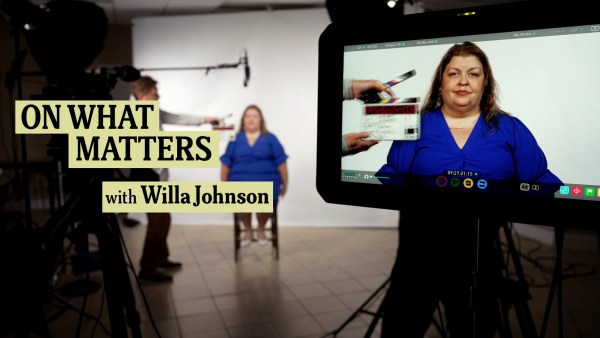
The Power of Appalachian Art With Willa Johnson and Sarita Gupta
Willa Johnson, director of the film department at Appalshop, and Sarita Gupta, vice president of U.S. programs at the Ford Foundation, discuss heartland creativity and amplifying rural narratives.
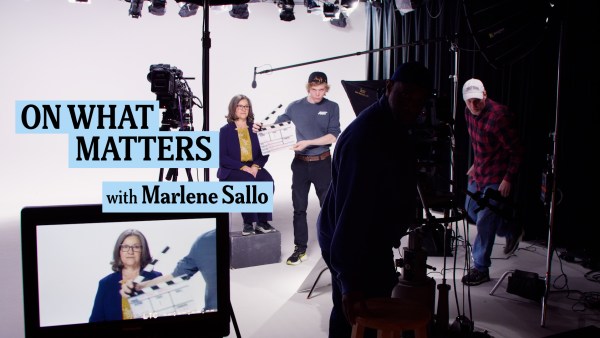
Centering Disability Rights and Justice With Marlene Sallo and Hilary Pennington
Marlene Sallo of the National Disability Rights Network and Hilary Pennington of the Ford Foundation talk about the systems that support and fail the disability community and how disability justice is essential to building a multiracial democracy.
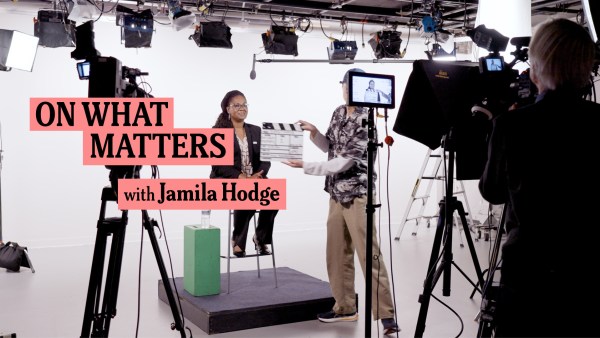
Advancing Community-Based Violence Intervention With Jamila Hodge and Sarita Gupta
Jamila Hodge of Equal Justice USA and Sarita Gupta of the Ford Foundation talk about community-based violence intervention and the importance of promoting a trauma-informed public health response to violence. Jamila explains how, if we want to address institutional racism, we must address the root causes of violence and center…
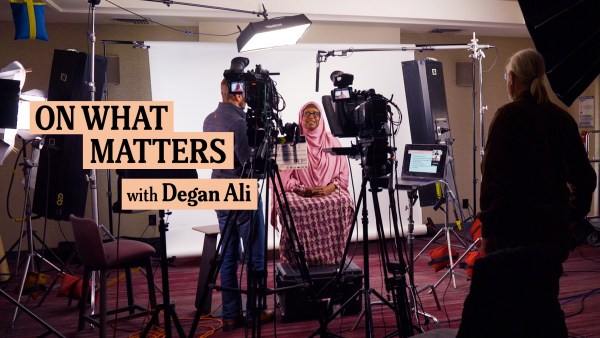
Decolonizing Humanitarian Aid With Degan Ali and Martín Abregú
Degan Ali and Martín Abregú talk about shifting to locally led development and decolonizing aid. Degan shares why we must rethink current structures of providing aid and have local civic society organizations play a stronger and more strategic role in global policy debates.
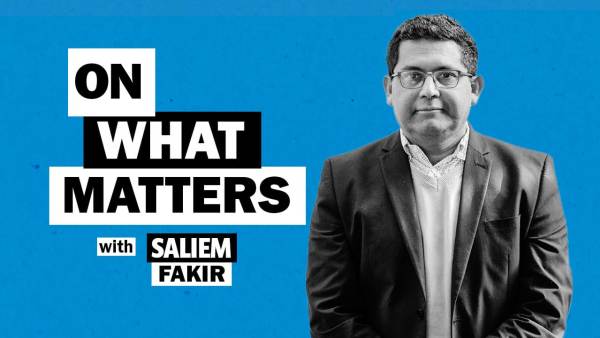
Working Towards a Truly Just Energy Transition with Hilary Pennington and Saliem Fakir
Saliem Fakir, the founder and executive director of the African Climate Foundation, the first grantmaking foundation in Africa focused on furthering solutions for sustainable climate development, joins Hilary Pennington to discuss the urgent need to address climate change and South Africa’s promising Just Energy Transition Partnership.
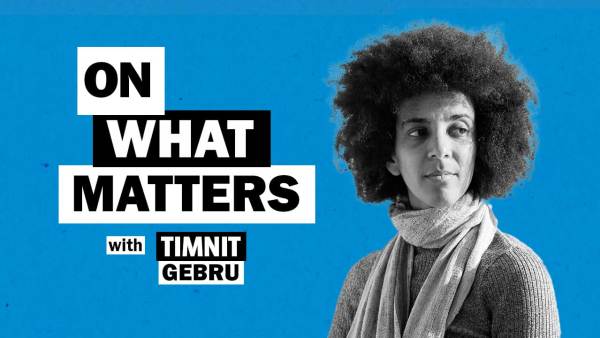
Making AI Systems More Just With Hilary Pennington and Dr. Timnit Gebru
Dr. Timnit Gebru, founder and executive director of the Distributed Artificial Intelligence Research Institute, shares her belief that, with careful deployment that includes diverse perspectives, AI can be beneficial to all people.
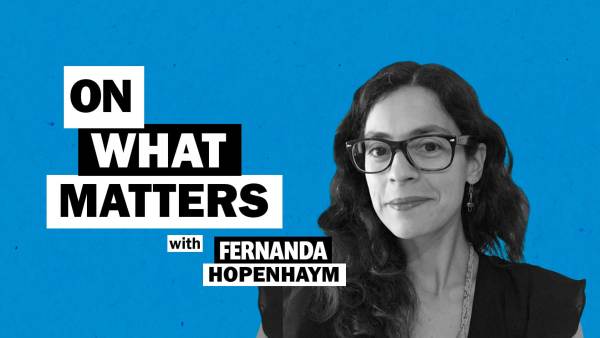
Holding corporations accountable with Hilary Pennington and Fernanda Hopenhaym
Fernanda Hopenhaym is the co-executive director of the Project on Organizing, Development, Education, and Research (PODER), a nonprofit in Latin America that pushes for corporate accountability for human rights and environmental abuses. Fernanda and Hilary discuss how to keep businesses ethical and transparent by using feminist and human rights organizing…
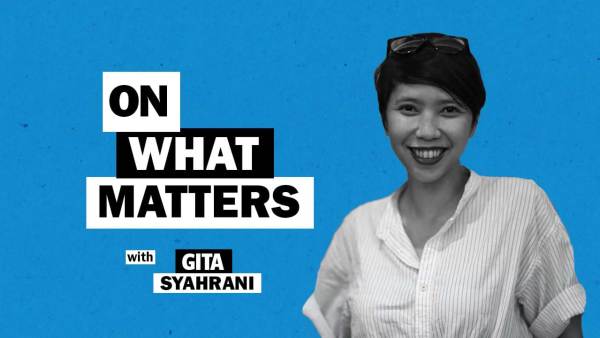
Saving forests while eradicating poverty with Hilary Pennington and Gita Syahrani
Hilary Pennington talks with Gita Syahrani about how engaging Indigenous and local communities in sustainability efforts can lead to greater economic mobility for them. Her work shows how civic engagement at the district level can have global impact.
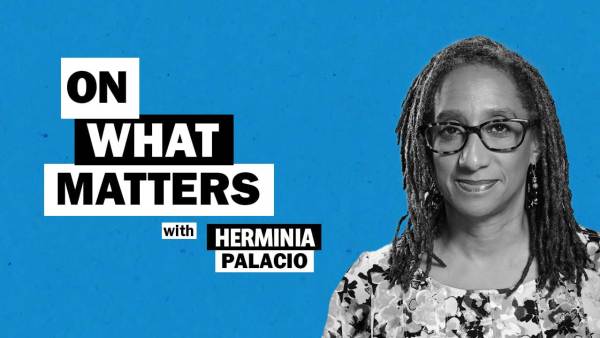
The future of reproductive justice with Hilary Pennington and Dr. Herminia Palacio
Hilary Pennington and Dr. Herminia Palacio discuss this moment in the reproductive justice movement, how different communities are impacted, and what the United States can learn from countries that have won gender and reproductive health victories.
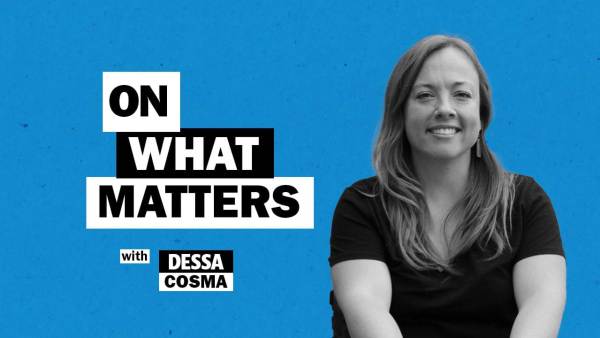
Reimagining how we think about disability with Hilary Pennington and Dessa Cosma
Hilary Pennington talks to Dessa Cosma about disability justice and inclusion. They discuss the importance of using intersectional approaches to activism and how to restructure the economy to be more just for disabled people.
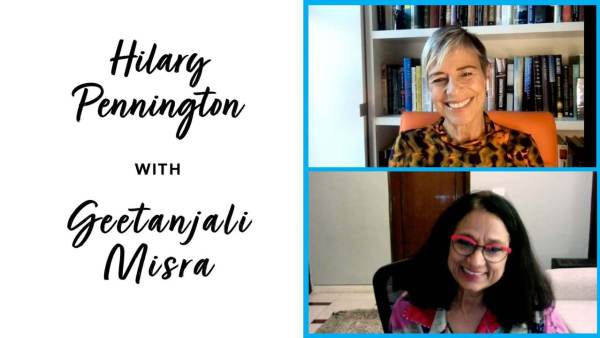
The future of feminism: Hilary Pennington with Geetanjali Misra
Geetanjali Misra has bore witness to the evolution of feminism both on the ground in the U.S. and India and in her work as an activist. Seeing patterns change and movements shift, she speaks about the importance of intersectionality in building a more inclusive feminist future.
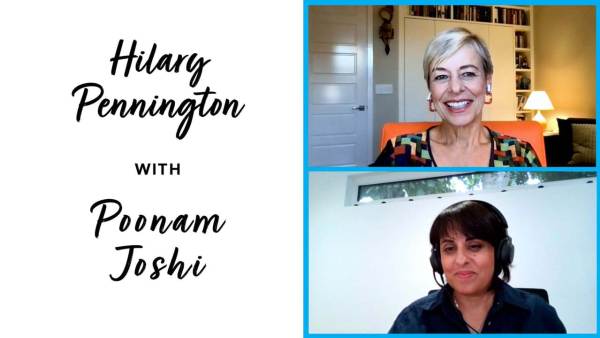
COVID’s Impact on Civic Space: Hilary Pennington With Poonam Joshi
Civic space is essential for democracy. Poonam Joshi, director of Funders’ Initiative for Civil Society, discusses the threats we must confront in its current landscape.
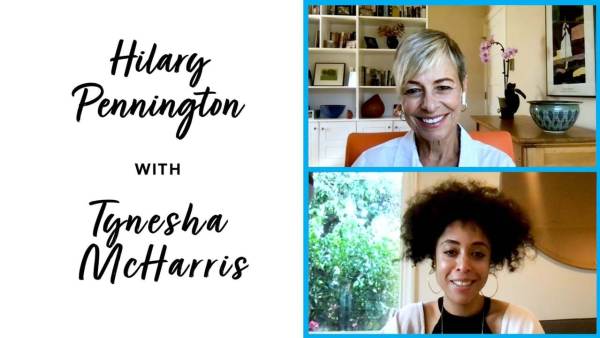
Funding Black feminism: Hilary Pennington with Tynesha McHarris
Black feminist movements are advancing social justice globally. Tynesha Harris, one of the founders of the Black Feminist Fund, aims to channel more support to movement leaders and create a model of true solidarity. Racial, gender, and class injustice need an intersectional approach that acknowledges the inherent value of Black…

Philanthropy and environmental justice: Hilary Pennington with Laura García
When it comes to climate change, time is running out. But communities all over the world are working on solutions, and philanthropy needs to center their ideas and perspectives to win this fight. Laura Garcia, CEO of GlobalGreen Grants Fund, shares how funding grassroots movements can address challenges at the…
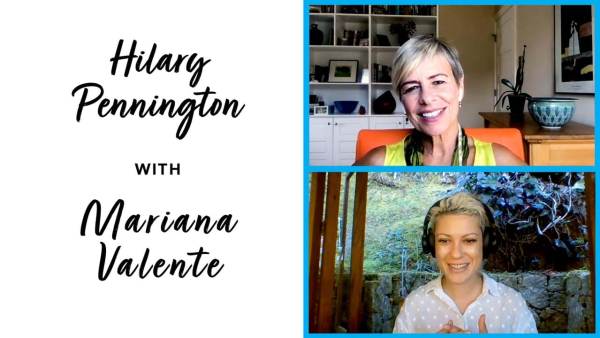
Technology and Gender: Hilary Pennington With Mariana Valente
InternetLab director Mariana Valente discusses how the internet has the potential to advance gender equality when it is guided by fundamental human rights.
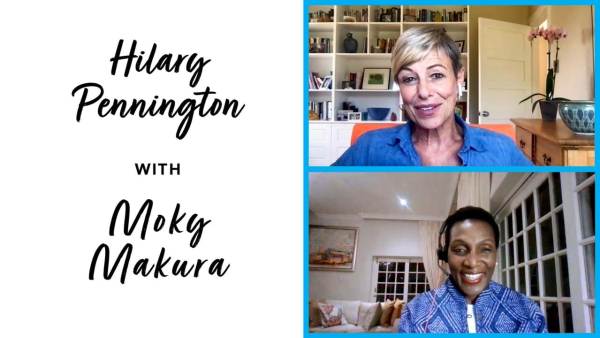
The power of storytelling: Hilary Pennington with Moky Makura
For too long, Africa has been defined in the media by stereotypes and oversimplified narratives. With Ford’s support, Africa No Filter is disrupting these narratives by empowering storytellers helping to create a nuanced, balanced view of the continent and an equitable, inclusive way of how to partner with it.
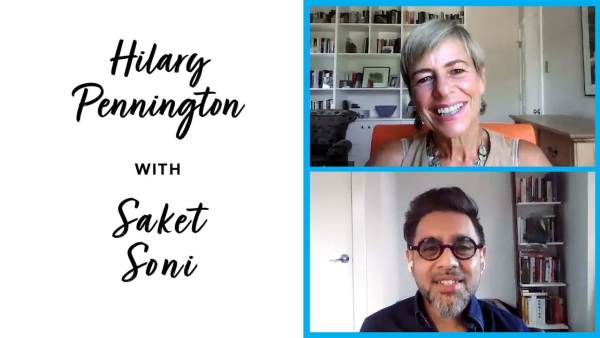
What essential workers need right now: Hilary Pennington with Saket Soni
Disasters present the opportunity to bring us together and give us the chance to reevaluate our priorities and ask what’s really important. Labor organizer Saket Soni sees COVID-19 as a prologue to other threats, like climate change. He says disaster responses need to focus on strengthening essential workers.
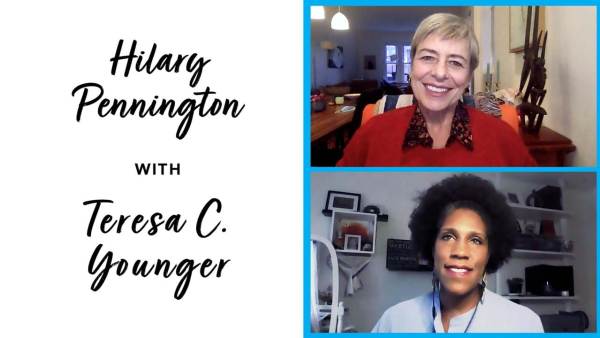
Philanthropy and Black women: Hilary Pennington with Teresa C. Younger
Social justice organizations led by women of color often receive less funding. Teresa C. Younger, CEO of the Ms. Foundation, explains why philanthropy needs to center women of color to address systemic racism and uplift women and girls of color for a more just future.
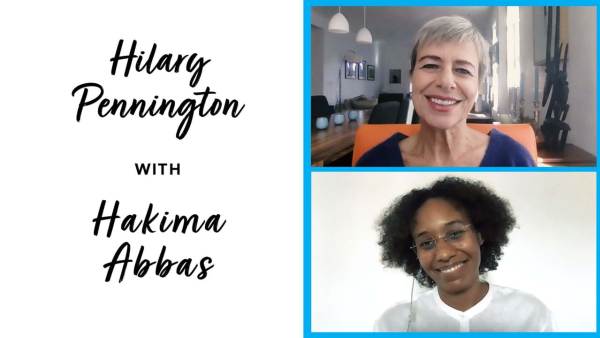
How young feminists are organizing: Hilary Pennington with Hakima Abbas
COVID-19 has impacted the way we work, but it also exacerbated gender inequality in the workplace. Hakima Abbas, of the Association for Women’s Rights in Development, believes we can prevent any further damage by including feminist leaders across the board in devising solutions.
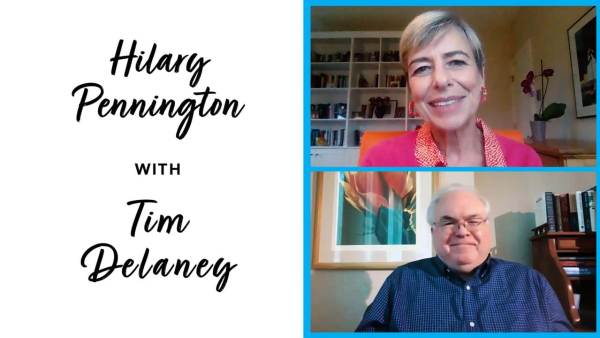
How nonprofits make an impact: Hilary Pennington with Tim Delaney
Over one million nonprofits exist in the United States, but Tim Delaney, the CEO of the National Council of Nonprofits, has an idea to make them even more impactful. To him, bringing social justice groups together can transform philanthropy for the benefit of all.
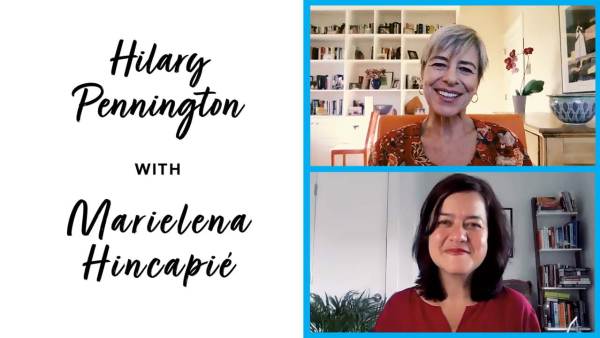
Immigrants are essential: Hilary Pennington with Marielena Hincapié
Immigration has been used as a weapon to divide the United States. The National Immigration Law Center aims to help the country understand that immigrants are not only important members of our communities and essential workers, but they are also valuable political constituencies needed to make American democracy work.
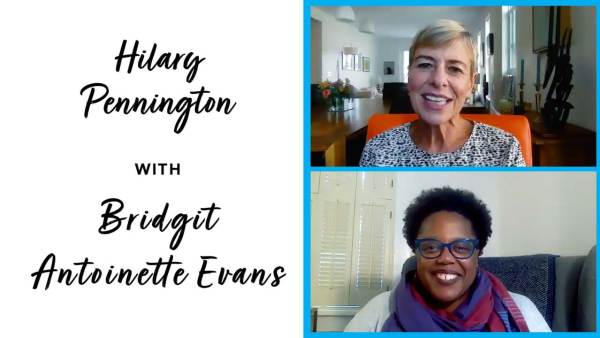
Social justice and pop culture: Hilary Pennington with Bridgit Antoinette Evans
Pop culture plays an important role in advancing social justice. Bridgit Evans of Pop Culture Collaborative produces cultural strategies that build on points of connection to ensure policy changes are not just symbolic. By finding commonalities through culture, she believes we can create a world where everyone feels they belong.
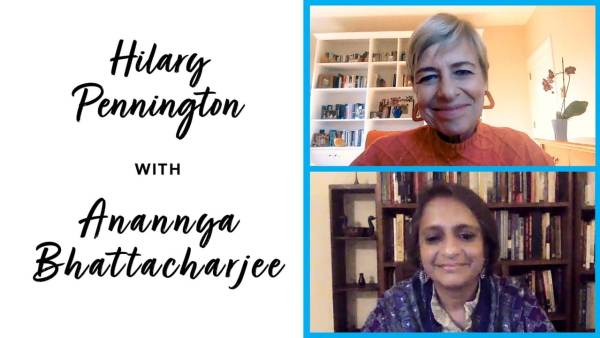
Global Work Needs to Be Local: Hilary Pennington With Anannya Bhattacharjee
Labor activist Anannya Bhattacharjee and former Ford vice president Hilary Pennington discuss how to scale local strategies to improve the lives of garment factory workers worldwide.

The urgency of this social moment: Hilary Pennington with Eric Ward
We need to dismantle racism to make inclusive democracy truly possible. Eric Ward of Western States Center believes smaller movements can help support bigger waves of change. From creating cohorts of emerging leaders to encouraging small group interactions can help protect democracy and put an end to white supremacy.